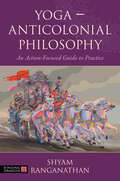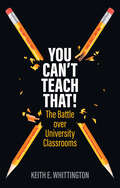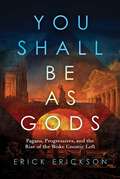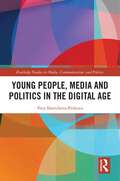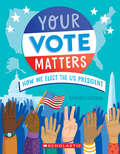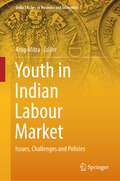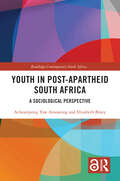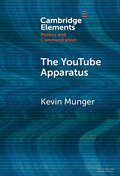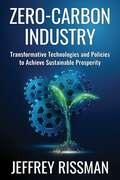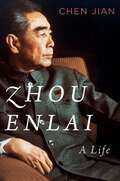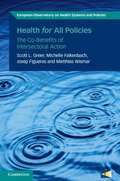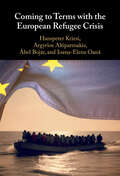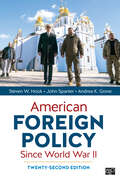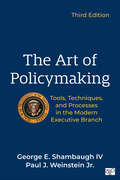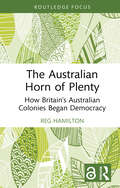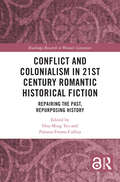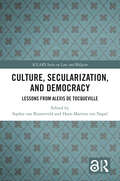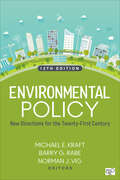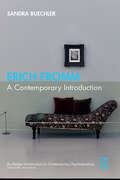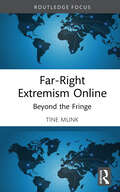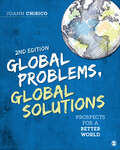- Table View
- List View
Yoga – Anticolonial Philosophy: An Action-Focused Guide to Practice
by Shyam RanganathanProviding a decolonial, action-focused account of Yoga philosophy, this practical work from Dr. Shyam Ranganathan, pioneering scholar in the field of Indian moral philosophy, focuses on the South Asian tradition to explore what Yoga was like prior to colonization. It challenges teachers and trainees to reflect on the impact of Western colonialism on Yoga as well as understand Yoga as the original decolonial practice in a way that is accessible. Each chapter takes the reader through a journey of sources and traditions, beginning with an investigation into the colonial -Platonic and Aristotelian- approaches to pedagogy in colonized yoga spaces, through contrary, ancient philosophies of South Asia, such as Jainism, Buddhism, Sankhya, and various forms of Vedanta, to sources of Yoga, including the Upanisads, Yoga Sutra, Bhagavad Gita and Hatha Yoga Pradipika. With discussions of the precolonial philosophy of Yoga, its relationship to social justice, and modern postural yoga's relationship with colonial trauma, this is a comprehensive guide for any yoga teacher or trainee to activate and synergize their practice. Supplementary online resources bring the text to life, making this the perfect text for yoga teacher trainings.
You Can't Teach That!: The Battle over University Classrooms
by Keith E. WhittingtonWho controls what is taught in American universities – professors or politicians? The answer is far from clear but suddenly urgent. Unprecedented efforts are now underway to restrict what ideas can be promoted and discussed in university classrooms. Professors at public universities have long assumed that their freedom to teach is unassailable and that there were firm constitutional protections shielding them from political interventions. Those assumptions might always have been more hopeful than sound. A battle over the control of the university classroom is now brewing, and the courts will be called upon to establish clearer guidelines as to what – if any – limits legislatures might have in dictating what is taught in public universities. In this path-breaking book, Keith Whittington argues that the First Amendment imposes meaningful limits on how government officials can restrict the ideas discussed on university campuses. In clear and accessible prose, he illuminates the legal status of academic freedom in the United States and shows how existing constitutional doctrine can be deployed to protect unbridled free inquiry.
You Shall Be as Gods: Pagans, Progressives, and the Rise of the Woke Gnostic Left
by Erick EricksonOur country doesn&’t have a partisan problem, a political problem, a social problem, or an economic problem. We have a spiritual problem.What in the world is happening? To many Americans, it feels as if reality itself has been turned upside down. Speaking truth, or even suggesting such a thing exists, is labeled as oppression and cause for social banning. Judeo-Christian values once taken for granted are not only routinely ignored, but openly attacked. Why is America being fundamentally transformed before our eyes?As Christianity has been pushed aside, the Progressive Left has developed a new pagan religion complete with all the trappings: creeds, confessionals, sacraments and mantras, liturgies, shunnings, sacred books, redemptive rituals, and priests and priestesses. But the radical roots of the new secular religion are ancient. We&’ve seen it all before. In You Shall Be as Gods, Erick Erickson traces the religion&’s roots from Paganism and Gnosticism through the Age of Enlightenment all the way into the Postmodernism of the 21st century. At the heart of the ancient religion is a self-centered culture.The Christian church today has been weakened by compromising with the neo-pagan religion, leaving the faithful confused and ill-prepared to counter the claims of society&’s present-day doctrine. Yet there remains a significant remnant, perhaps even a silent majority, in America that refuses to bow to the rising belief system.Just as in Rome and countless societies throughout history, the religions present two opposing stories of reality which necessitates conflict. In an era where the &“Christian thing&” to do seems to be to go along and get along, Erickson makes clear that the two cultures cannot peacefully coexist and calls the reader to speak the truth in love.
Young People, Media and Politics in the Digital Age (Routledge Studies in Media, Communication, and Politics)
by Vera Slavtcheva-PetkovaThe book explores the relationship among young people, politics and the media. It presents a novel multidimensional analytical framework – The Circle Line Media Model, which accounts for the importance of a range of processes, actors and social structures in the political socialisation process. By defining political socialisation as a lifelong interactive process that develops civic cultures, collective identities and citizenship, underpinned by social structures, nationality and generational order, the author draws attention to its manifestation in acts of political participation and interactions with authoritative actors such as school/teachers, family, the media and friends/peers. The volume’s longitudinal study on young people, Europe and the media spanning 13 years of research in two very different countries also makes recommendations for more effectively engaging young people with politics and political media based on Generation Z’s own views about current deficiencies in their relationship with news media. Shedding new light on the changing nature of young people’s engagement with politics, this book will be of interest to researchers, lecturers/professors and upper level undergraduate and postgraduate students in the fields of media studies, communication and journalism studies as well as politics and sociology.
Your Vote Matters: How We Elect the US President
by Rebecca KatzmanThis engaging and comprehensive illustrated guide will answer all kids' questions about how the president is elected!There's never been a timelier moment for kids to learn the importance of voting. Your Vote Matters walks readers through all the ins and outs of voting in America -- and more specifically, voting in presidential elections.This easy-to-understand guide explains every step in the presidential election process -- from who is eligible to run for president to what the president does once they are sworn into office. Learn about campaigning and debates, the difference between caucuses and primaries, and how the Electoral College works, plus information about who is eligible to vote; the many different ways citizens can vote on (and leading up to) Election Day; what happens after the final ballots are cast; and tips on what to consider when deciding which candidate should get your vote.Each page of this nonfiction guidebook also features full-color artwork, including photographs, maps, illustrations, charts, and infographics aimed at making the information inside as accessible and kid-friendly as possible.Your Vote Matters is the perfect book to not only help kids understand how elections work -- but why it's important to participate in every single one.
Youth in Indian Labour Market: Issues, Challenges and Policies (India Studies in Business and Economics)
by Arup MitraThis book addresses labour market participation issues of youth in India, and follows an inter-disciplinary approach. It carries out both quantitative and qualitative assessments for an in-depth understanding of these issues. It collates a wide range of concerns both from supply and demand side, and instead of reflecting on the empirical questions only, the book reflects on various analytical questions as well. Some other challenges being discussed here are inadequacy of skill and compulsion to participate in the labour market, concentration in activities with excess supplies of labour, unrecognised work experience, lack of upward mobility, and working with information asymmetry. Caste and gender disadvantages are an instrumental part of the book. Problems of educated and uneducated youth are quite different and the book analyses them separately. Besides, it refers to a wide range of issues relating to occupational flexibility. It also discusses skill imparting institutions and themajor lacuna associated with their functioning. Social unrest and threats to the prospects of future growth in the absence of adequate youth employment are some of the economic and political issues which the book covers. Unraveling the threads of the concerns mentioned above, the book finally comes up with policy suggestions. It is a great resource for researchers, industry watchers, and policy makers who are interested in inclusive and sustainable growth.
Youth in Post-Apartheid South Africa: A Sociological Perspective (ISSN)
by Acheampong Yaw Amoateng Elizabeth BineyThis book investigates the life experiences of youth in South Africa, considering whether contemporary youth have benefitted from the socioeconomic reconstruction of post-apartheid society.Student protests against apartheid drove transformative change in South Africa, and the subsequent new constitution promised positive change for the nation’s youth across a range of sectors. Adopting a sociological perspective, this book uses primary and secondary data sources to illustrate the myriad ways post-apartheid socioeconomic developments have impacted the life experiences of the country’s youth across areas including health, education, family life, economic activity, technology, substance use, and politics. The book considers the historical legacy of colonialism, racism and immigration in shaping the context in which youth experiences in the country have evolved. The book argues that in 1976 South Africa’s youth became the conscience of the nation when they brought the apartheid regime to its knees during the Soweto uprising. What happens to them now will continue to define the nation’s future.This book will be of interest to researchers across the social sciences, most especially in the fields of Sociology, Demography, Development Studies, and Psychology.
The YouTube Apparatus (Elements in Politics and Communication)
by null Kevin MungerThe academic agenda for studying social media and politics has been somewhat haphazard. Thanks to rapid technological change, a cascade of policy-relevant crises, and sheer scale, we do not have a coherent framework for deciding what questions to ask. This Element articulates such a framework by taking existing literature from media economics and sociology and applying it reflexively, to both the academic agenda and to the specific case of politics on YouTube: the Supply and Demand Framework. The key mechanism, traced over the past century, is the technology of audience measurement. The YouTube audience comes pre-rationalized in the form of Likes, Views and Comments, and is thus unavoidable for all actors involved. The phenomenon of 'radicalization' is best understood as a consequence of accelerated feedback between audiences and creators, radicalizing each other. I use fifteen years of supply and demand data from YouTube to demonstrate how different types of producers respond more or less to this feedback, which in turn structures the ideological distribution of content consumed on the platform.
Zero-Carbon Industry: Transformative Technologies and Policies to Achieve Sustainable Prosperity (Center on Global Energy Policy Series)
by Jeffrey RissmanThe power sector and transportation tend to dominate conversations about climate change, but there’s an under-the-radar source of climate pollution that must be addressed: industry. Globally, industrial activity is responsible for one-third of human-caused greenhouse gas emissions. Though industry is a major emitter, it is essential for producing the tools we need to fight climate change—like wind turbines, solar panels, and electric vehicles—and for meeting our everyday needs. How can industry eliminate its climate pollution while supplying transformational technologies?This book delivers a first-of-its-kind roadmap for the zero-carbon industrial transition, spotlighting the breakthrough innovations transforming the manufacturing sector and the policies that can accelerate this global shift. Jeffrey Rissman illustrates the scope of the challenge, diving into the workings of heavy polluters like steel, chemicals, plastics, cement, and concrete. He examines ways to affordably decarbonize manufacturing, such as electrifying industrial processes, using hydrogen, deploying carbon capture and storage, and growing material efficiency with lightweighting and 3D printing. But technologies are only part of the picture. Enacting the right policies—including financial incentives, research and development support, well-designed carbon pricing, efficiency and emissions standards, and green public procurement—can spur investment and hasten emissions reductions. Rissman provides a framework to ensure that the transition to clean industry enhances equity, health, and prosperity for communities worldwide.Engaging and comprehensive, Zero-Carbon Industry is the definitive guide to decarbonizing the vast—yet often overlooked—global industrial sector.
Zhou Enlai: A Life
by Jian ChenThe definitive biography of Zhou Enlai, the first premier and preeminent diplomat of the People’s Republic of China, who protected his country against the excesses of his boss—Chairman Mao.Zhou Enlai spent twenty-seven years as premier of the People’s Republic of China and ten as its foreign minister. He was the architect of the country’s administrative apparatus and its relationship to the world, as well as its legendary spymaster. Richard Nixon proclaimed him “the greatest statesman of our era.” Yet Zhou has always been overshadowed by Chairman Mao. Chen Jian brings Zhou into the light, offering a nuanced portrait of his complex life as a revolutionary, a master diplomat, and a man with his own vision and aspirations who did much to make China, as well as the larger world, what it is today.Born to a declining mandarin family in 1898, Zhou received a classical education and as a teenager spent time in Japan. As a young man, driven by the desire for China’s development, Zhou embraced the communist revolution as a vehicle of China’s salvation. He helped Mao govern through a series of transformations, including the disastrous Great Leap Forward and Cultural Revolution. Yet, as Chen shows, Zhou was never a committed Maoist. His extraordinary political and bureaucratic skill, combined with his centrist approaches, enabled him to mitigate the enormous damage caused by Mao’s radicalism.When Zhou died in 1976, the PRC that we know of was not yet visible on the horizon; he never saw glistening twenty-first-century Shanghai or the broader emergence of Chinese capitalism. But it was Zhou’s work that shaped the nation whose influence and power are today felt in every corner of the globe.
Zivilgesellschaft und Stadtöffentlichkeit: Eine akteurszentrierte Analyse der kommunikativen Figuration der Stadt
by Katharina Heitmann-WernerStadtöffentlichkeiten sind bunt, vielfältig und heterogen. Besonders deutlich wird dies bei der Analyse der beteiligten Akteure. Denn während klassische Öffentlichkeitsakteure, wie etwa lokale Medien bereits vielfach wissenschaftlich erforscht worden sind, nimmt dieses Buch eine Akteursgruppe unter die Lupe, die bisher aus kommunikations- und medienwissenschaftlicher Perspektive wenige Beachtung erfahren hat. Zivilgesellschaftliche Kollektive wie Sportvereine, soziale Bewegungen oder Kunst- und Kultureinrichtungen prägen mit ihren vielfältigen Angeboten und Aktionen das Stadtbild. Gleichzeitig prägen sie auch die städtische Öffentlichkeit, indem sie sich aktiv an ihrer Konstitution beteiligen. Die Autorin identifiziert sieben unterschiedliche Typen zivilgesellschaftlicher Kollektive, die jeweils ganz eigene Medienpraktiken und -ensembles zur öffentlichen Kommunikation einsetzen. Sie verfolgen dabei sehr unterschiedliche Ziele innerhalb der Stadtöffentlichkeit und agieren innerhalbjeweils sehr verschiedener Netzwerke. Das Buch stellt die äußerst relevante Rolle dieser Akteure bei der Öffentlichkeitskonstitution heraus und zeigt, dass es gewinnbringend ist, Akteure von Stadtöffentlichkeiten nicht isoliert zu erforschen, sondern innerhalb ihrer Beziehungsgefüge zu anderen Akteuren der Stadtöffentlichkeit.
Health for All Policies: The Co-Benefits of Intersectoral Action (European Observatory on Health Systems and Policies)
by Scott L. Greer Michelle Falkenbach Josep Figueras Matthias WismarFactors outside of healthcare services determine our health and this involves many different sectors. Health for All Policies changes the argument about inter-sectoral action, from one focusing on health and the health sector to one based on co-benefits – a 'Health for All Policies' approach. It uses the Sustainable Development Goals as the framework for identifying goals across sectors and summarizes evidence along two causal axes. One is the impact of improved health status on other SDGs, e.g. better educational and employment results. The other is the impact of health systems and policies on other sectors. The 'Health for All Policies' approach advocated in this book is thus a call to improve health to achieve goals beyond health and for the health sector itself to do better in understanding and directing its impact on the world beyond the healthcare it provides. This title is also available as Open Access on Cambridge Core.
Coming to Terms with the European Refugee Crisis
by null Hanspeter Kriesi null Argyrios Altiparmakis null Ábel Bojár null Ioana-Elena OanăThe refugee crisis which hit the European Union and its member states during 2015–16 was just one in a series of recent crises, but perhaps the most critical for the EU's resilience. This book shows how policymakers in the EU polity have tried to come to terms with it. To explain how they reacted to the crisis domestically and jointly at the EU-level, the study relies on an original method to analyze political processes. It argues that the policy-specific institutional context and the specific crisis situation, defined in terms of asymmetrical problem and political pressure, largely shaped the crisis response. The authors suggest that the way in which the refugee crisis was managed has resulted in conflicts between member states, which have been further exacerbated in subsequent crises and will continue to haunt the EU in times to come. This title is also available as Open Access on Cambridge Core.
American Foreign Policy Since World War II
by Steven W. Hook John W. Spanier Andrea K. GroveNow in its Twenty-Second Edition, Hook, Spanier, and Grove’s American Foreign Policy Since World War II has long set the standard in guiding students through the complexities of American foreign policy. The text introduces students to the American "style" of foreign policy, imbued with a distinct sense of national exceptionalism. By giving students the historical context they need, this book allows them to truly grasp the functions and dysfunctions of the nation’s foreign policy agenda with historical insight into modern policy context.
American Foreign Policy Since World War II
by Steven W. Hook John W. Spanier Andrea K. GroveNow in its Twenty-Second Edition, Hook, Spanier, and Grove’s American Foreign Policy Since World War II has long set the standard in guiding students through the complexities of American foreign policy. The text introduces students to the American "style" of foreign policy, imbued with a distinct sense of national exceptionalism. By giving students the historical context they need, this book allows them to truly grasp the functions and dysfunctions of the nation’s foreign policy agenda with historical insight into modern policy context.
The Art of Policymaking: Tools, Techniques, and Processes in the Modern Executive Branch
by George Shambaugh Paul J. WeinsteinThe Art of Policymaking is the only book designed to provide students and practitioners with a detailed explanation of the specific tools, techniques, and processes used to create policy in the U.S., as well as the tools they need to understand them. The book includes practical advice on how to write memos, prepare polling questions, and navigate the clearance process. Case studies show how actual policies were developed and how and why policies and processes differed across administrations. And scenarios allow students to practice the tools and techniques they have learned by working through both domestic and foreign policy situations. Written by two experts in the field with experience in both academia and government, The Art of Policymaking is the perfect how-to guide for students and professionals.
The Art of Policymaking: Tools, Techniques, and Processes in the Modern Executive Branch
by George Shambaugh Paul J. WeinsteinThe Art of Policymaking is the only book designed to provide students and practitioners with a detailed explanation of the specific tools, techniques, and processes used to create policy in the U.S., as well as the tools they need to understand them. The book includes practical advice on how to write memos, prepare polling questions, and navigate the clearance process. Case studies show how actual policies were developed and how and why policies and processes differed across administrations. And scenarios allow students to practice the tools and techniques they have learned by working through both domestic and foreign policy situations. Written by two experts in the field with experience in both academia and government, The Art of Policymaking is the perfect how-to guide for students and professionals.
The Australian Horn of Plenty: How Britain's Australian Colonies Began Democracy
by Reg HamiltonHamilton explores in a short history how all men gained the vote, self-government and the secret ballot in South Australia (1856), Victoria (1857), and New South Wales (1858).Australia permanently democratised without a violent revolution, and at a very early time. In 1851–1858, local parliaments in the British colonies of New South Wales, Victoria, and South Australia gave all men the vote, including Aboriginal and Chinese men, the secret ballot, and self-government of local affairs. Britain approved, this book examines the parliamentary debate which led to these radical democracies. Debates covered voting eligibility, the secret ballot, the upper house of parliament, equal electorates, multiple voting, illiterate voters, control of Crown lands, terms of parliament, payment of members, and separation of Church and State. British parliamentary tradition was combined with the advanced liberal thinking of the time, Chartism with the British constitution. The democratisation of 1851–1858 in the three largest Australian colonies was as fundamental to Australian prosperity as the ‘mixed’ market economy.This is a vital text for scholars of democracy as well as those interested in Australian Studies, Australian History, Political Science, Constitutional Law, and the building blocks of first-world prosperity.
Conflict and Colonialism in 21st Century Romantic Historical Fiction: Repairing the Past, Repurposing History (Routledge Research in Women's Literature)
by Hsu-Ming Teo and Paloma Fresno-CallejaThis book explores how postmillennial Anglophone women writers use romantic narrativisations of history to explore, revise, repurpose and challenge the past in their novels, exposing the extent to which past societies were damaging to women by instead imagining alternative histories. The novelists discussed employ the generic conventions of romance to narrate their understanding of historical and contemporary injustice and to reflect upon women’s achievements and the price they paid for autonomy and a life of public purpose. The volume seeks, firstly, to discuss the work of revision or reparation being performed by romantic historical fiction and, secondly, to analyse how the past is being repurposed for use in the present. It contends that the discourses and genre of romance work to provide a reparative reading of the past, but there are limitations and entrenched problems in such readings.
Culture, Secularization, and Democracy: Lessons from Alexis de Tocqueville (ISSN)
by Sophie van Bijsterveld and Hans-Martien ten NapelFollowing the approach developed by Alexis de Tocqueville, this volume views democracy as a cultural phenomenon. It starts from the assumption that if we are to adequately address concerns about the current state and future of modern Western democracies, we need first to tackle the cultural preconditions necessary for the functioning of a democracy.Since Tocqueville’s time, the book takes the most crucial change in the West to be ‘double secularisation’. Here, this concerns, first, the diminished influence of organised Christianity. Even though secularity was partly a product of Christianity, secularisation is highly significant in terms of the cultural underpinnings of Western democracy. Second, it involves a decreased interest in and knowledge of classical philosophy.Chapters on secularity, family life, civic life, and public spirit focus on central elements of the changed cultural foundation of democracy, exploring issues such as identity politics, the public space, and the role of human rights and natural law in a pluralistic and resilient democracy. The volume concludes with a closer look at the implications of current presentism, that is, the view that only the present counts for the legitimacy and effectiveness of democratic systems. Finally, it asks if double secularisation can also offer fresh opportunities for promoting the conditions of a viable democracy.The book will be of interest to academics and researchers working in the areas of law and religion, constitutional law, political science, history, and philosophy.
Environmental Policy: New Directions for the Twenty-First Century
by Michael E. Kraft Barry G. RabeAs environmental issues continue to become more prevalent in society and surrounding policy challenges become more complex, Environmental Policy once again brings together top scholars to evaluate the changes and continuities in American environmental policy since the late 1960s and their implications for current policy. Students will learn to decipher the underlying trends, institutional constraints, and policy dilemmas that shape today’s environmental politics as they evaluate approaches to future challenges.
Environmental Policy: New Directions for the Twenty-First Century
by Michael E. Kraft Barry G. RabeAs environmental issues continue to become more prevalent in society and surrounding policy challenges become more complex, Environmental Policy once again brings together top scholars to evaluate the changes and continuities in American environmental policy since the late 1960s and their implications for current policy. Students will learn to decipher the underlying trends, institutional constraints, and policy dilemmas that shape today’s environmental politics as they evaluate approaches to future challenges.
Erich Fromm: A Contemporary Introduction (Routledge Introductions to Contemporary Psychoanalysis)
by Sandra BuechlerIn this passionate volume, Sandra Buechler introduces Erich Fromm's groundbreaking contributions to psychoanalysis, sociology, philosophy, political action, and social criticism. | Buechler explores how Fromm's thinking and interdisciplinary vision are able to frame discussions of dilemmas in contemporary society. She offers a comprehensive biography of Fromm, before delving into his role as analyst, author, activist, sociologist and philosopher. From her own experience as a psychoanalyst, and from the testimony of Fromm's many ardent followers, Buechler illuminates Fromm's capacity to inspire. She considers how Fromm's writing equips students, beginning clinicians and more experienced professionals to understand what can give meaning to their efforts on behalf of troubled individuals, their riven communities, and the wider world. | Assuming no prior knowledge of Fromm's work, this books offers students in clinical and social psychology, sociology, and philosophy a vital insight into his theoretical contributions. It will also be of interest to psychoanalysts, psychologists and social workers.
Far-Right Extremism Online: Beyond the Fringe (Routledge Studies in Digital Extremism)
by Tine MunkBy imparting crucial insights into the digital evolution of far-right extremism and its challenges, this book explores how far-right extremism has transformed, utilising digital spaces for communication and employing coded language to evade detection.Far-right extremism has spread extensively across online platforms. Flourishing within echo chambers, these groups propagate different types of online and offline actions and advance their hateful ideologies to a wide-ranging audience. This book highlights the issues surrounding far-right extremism, which distinguishing it from terrorism and examining its contemporary digital manifestations. Importantly, it sheds light on how far-right groups utilise online platforms for communication, radicalisation, and on-ground actions, relying on alternative truths, misinformation, conspiracy theories, fashion, and memes to connect with like-minded individuals. The book also addresses content moderation challenges and the impact of rising populism in today’s political climate, which fuels societal divisions and uncertainty.Far-Right Extremism Online is a valuable resource for academics, students, analysts, and professionals working in counter-extremism, cybersecurity, digital communication, and national security. It is also an indispensable guide for those concerned about far-right extremism in the digital age.
Global Problems, Global Solutions: Prospects for a Better World
by JoAnn A. ChiricoGlobal Problems, Global Solutions: Prospects for a Better World approaches social problems from a global perspective with an emphasis on using one’s sociological imagination. Perfect for instructors who involve students in research, this text connects problems borne by individuals to regional, global and historical forces, and stresses the importance of evidence in forming opinions and policies addressing social issues. The Second Edition explores three broad themes--nourishing human capital, restoring civility, and sustaining natural and manufactured environments--as it examines the causes and consequences of a range of problems related to economic inequality, discrimination and persecution, war and violence, food production, population flows, health and longevity, the environment, and other issues that we encounter in our lives. The book concludes with a chapter on politics and government, underscoring the need for good governance at all levels–and cooperation among many layers of government–to build a better world.
